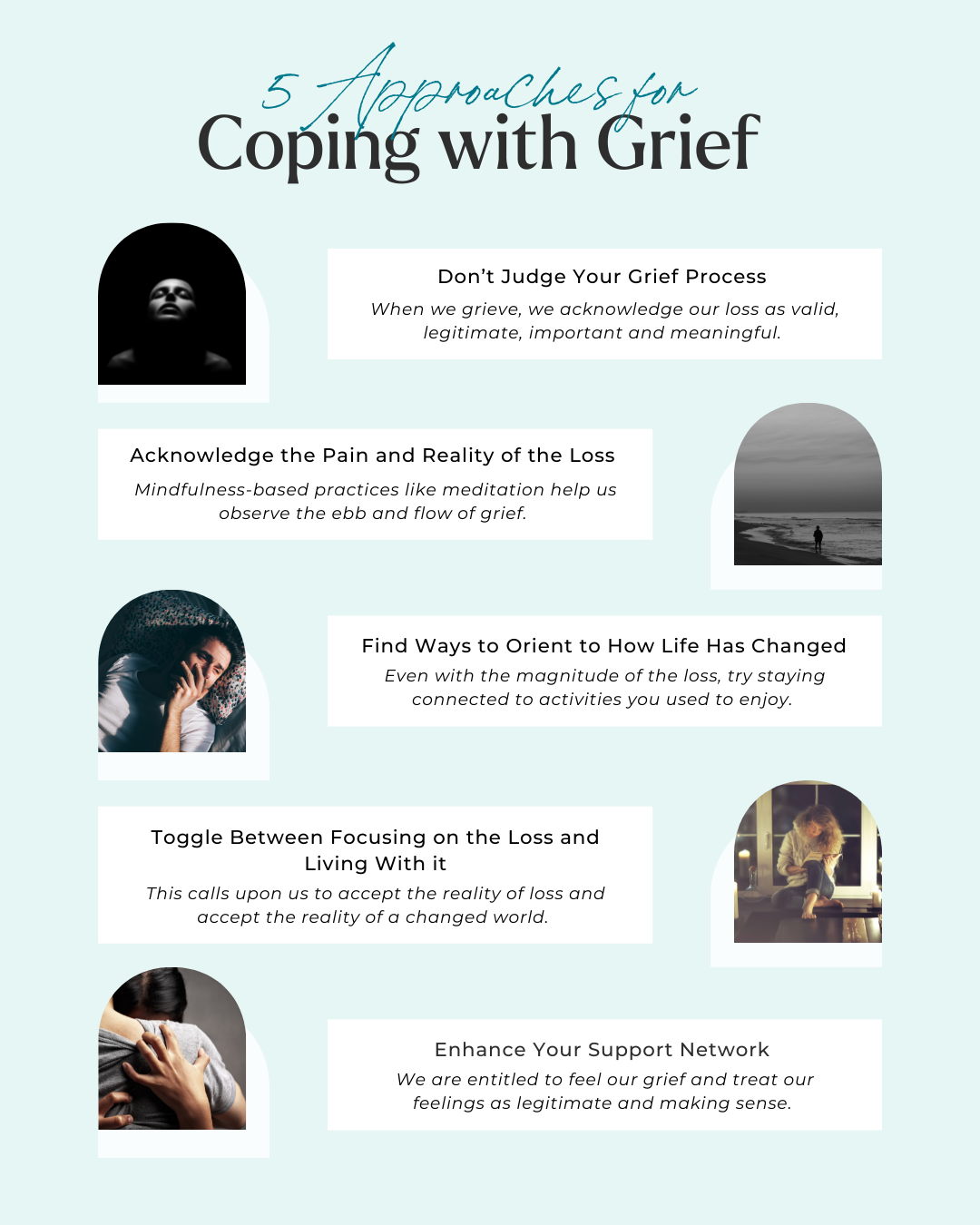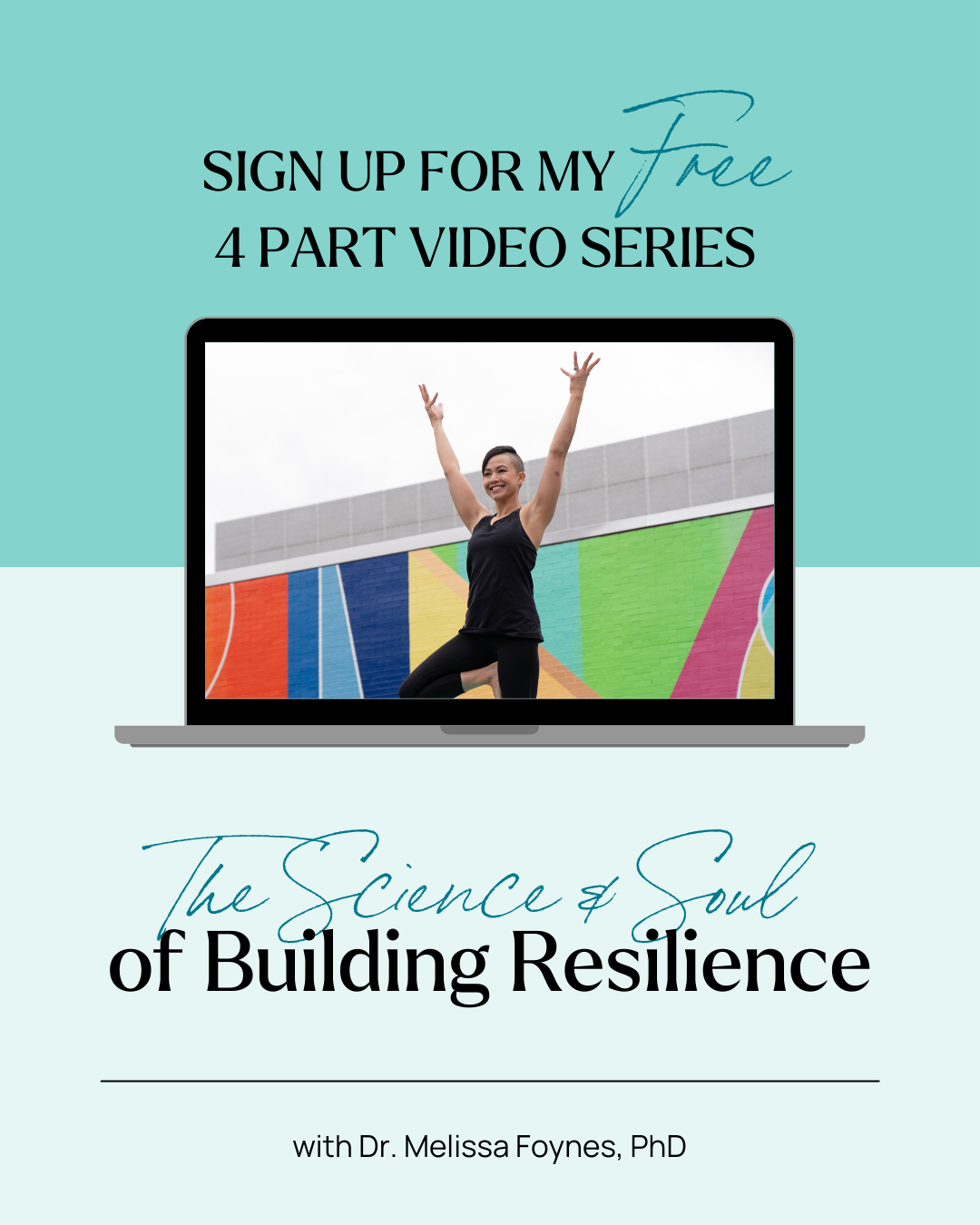welcome, I'm Melissa
Links
As a holistic coach, psychologist, mindfulness, meditation & yoga instructor, & Ayurvedic doula I offer personalized paths to growth & healing.
you may also like...
Navigating Grief: 5 Approaches for Coping
February 25, 2021
Though grief is an emotion that often feels overwhelming, it’s also an experience of our shared humanity that can unite us.
An immense amount of grief and loss occurred over the past year — some death-related and some not.
These recent experiences of grief and loss can exacerbate both our accumulated experiences of loss across our lifespans as well as the generations of historical trauma and grief that may exist in our communities.
Research shows us that grief is not linear; people move in and out of actively grieving. The intensity and rawness of grief, at times, can leave us feeling isolated and alone.
How do we hold compassionate space for our own grief while walking alongside each other in our collective mourning?
Here are five strategies for navigating grief and enhancing our sense of support and solace during challenging times.
1. Don’t Judge Your Grief Process
Grief serves important functions — such as preserving our connection to an important person and signaling to others that we are in a time of emotional need.
Our individual life experiences, families and cultures can shape how we process grief. It’s important to understand grief through a non-judgmental lens.
Not allowing space to experience grief deprives us of a way of honoring the loss — and the depth of our love.
When we grieve, we acknowledge our loss as valid, legitimate, important and meaningful.
Grief becomes part of the fabric of our lives. Our experience of grief over a loss may evolve, but our mourning has no defined timeframe.
2. Acknowledge the Pain and Reality of the Loss
While navigating grief, there are many ways we can both facilitate experiencing our emotions and staying connected with the deceased.
These include…
-
- Mindfulness-based practices
- Rituals
- Writing
- Creative arts
Mindfulness-based practices like meditation help us observe the ebb and flow of grief.
We can notice how grief feels in our bodies and what images, memories, thoughts or other emotions are associated with the loss.
Mindfulness can also aid in discerning when stepping away from our grief is needed.
Rituals offer another important tool when mourning.
Anything can be a ritual — from visiting a special place, lighting a candle or tending to a garden that symbolically represents the care and love you showed toward a loved one when living.
Writing is a strategy that many people find useful, too. Poetry, writing letters to the deceased, journaling or blogging are ways to navigate the grieving journey.
Creative arts modalities can also be helpful. Dance or movement, painting, singing, photography, collage – anything that helps experience emotion and connect to memories of the deceased in a meaningful way — are beneficial approaches.
3. Find Ways to Orient to How Life Has Changed
Loss creates change in our lives.
Adjusting to a life that is different than we envisioned, and finding ways to see the future as holding possibilities for a life with purpose, joy and meaning can be challenging — especially while we are grieving.
Even with the magnitude of the loss, try staying connected to activities you used to enjoy.
Focusing on meaning and purpose in the midst of loss is not intended to diminish or detract from the pain of grief.
When navigating grief, these activities serve as a way of engaging in one’s moment-to-moment experience that fully acknowledges, appreciates and honors grief.
4. Toggle Back and Forth Between a Focus on the Loss and Living With the Loss
As we move through our grieving process, we find ourselves shifting between focusing on the loss and living with the loss; we must make space for both.
This calls upon us to accept the reality of loss and accept the reality of a changed world — both maintaining a connection to the deceased and developing new roles, identities and relationships.
5. Enhance Your Support Network
Before receiving support and validation from others, we first need to validate our grief experience.
Learn to observe and name the signs of invalidation — both within ourselves and from others.
Phrases like “it’s not that big of a deal; other people are going through this, too” or “look on the bright side and try to stay grateful” are ways we invalidate the experience of grief.
We are entitled to feel our grief and treat our feelings as legitimate and making sense.
This self-validation enables us to better seek support from others, allowing us to more accurately express the depth of our pain and accept the understanding and compassion we desire.

Navigating Grief: Next Steps
The cost of not grieving can be considerable, including personal suffering.
To deepen your understanding of grief and better support others…
- Listen to the full podcast episode
The Cost of Not Grieving
You can also learn more about my coaching practice through this free video series:
The Science & Soul of Building Resilience
In this 4-part series you’ll learn:
- Body awareness to help us center ourselves and live in a present-focused and embodied way even in the midst of stress
- Decreasing our stress response so we can access intuition and connect to our needs
- Values clarification to guide decisions about prioritizing our time, attention and energy
- Self-compassion to soften our harsh inner critics and facilitate growth following mistakes
SIGN UP to Get Instant Access!
MAKE SURE TO SUBSCRIBE TO THE SCIENCE & SOUL OF LIVING WELL PODCAST!
Apple | Google | Spotify | iHeart | Audible
You can also contact me or join us on Instagram – @drfoynes.
Related Articles on Navigating Grief:
Freebie Alert!
Freebie Alert!
Newsletter
Sign up to get a dose of love, inspiration, wisdom &
all the latest news on events straight to your inbox.
privacy
terms
made with ❤ by habitat society
Explore
©2022, Melissa foynes
Thank you
You're subscribed to my newsletter. Please whitelist my email to make sure you don't missing anything I send you.



